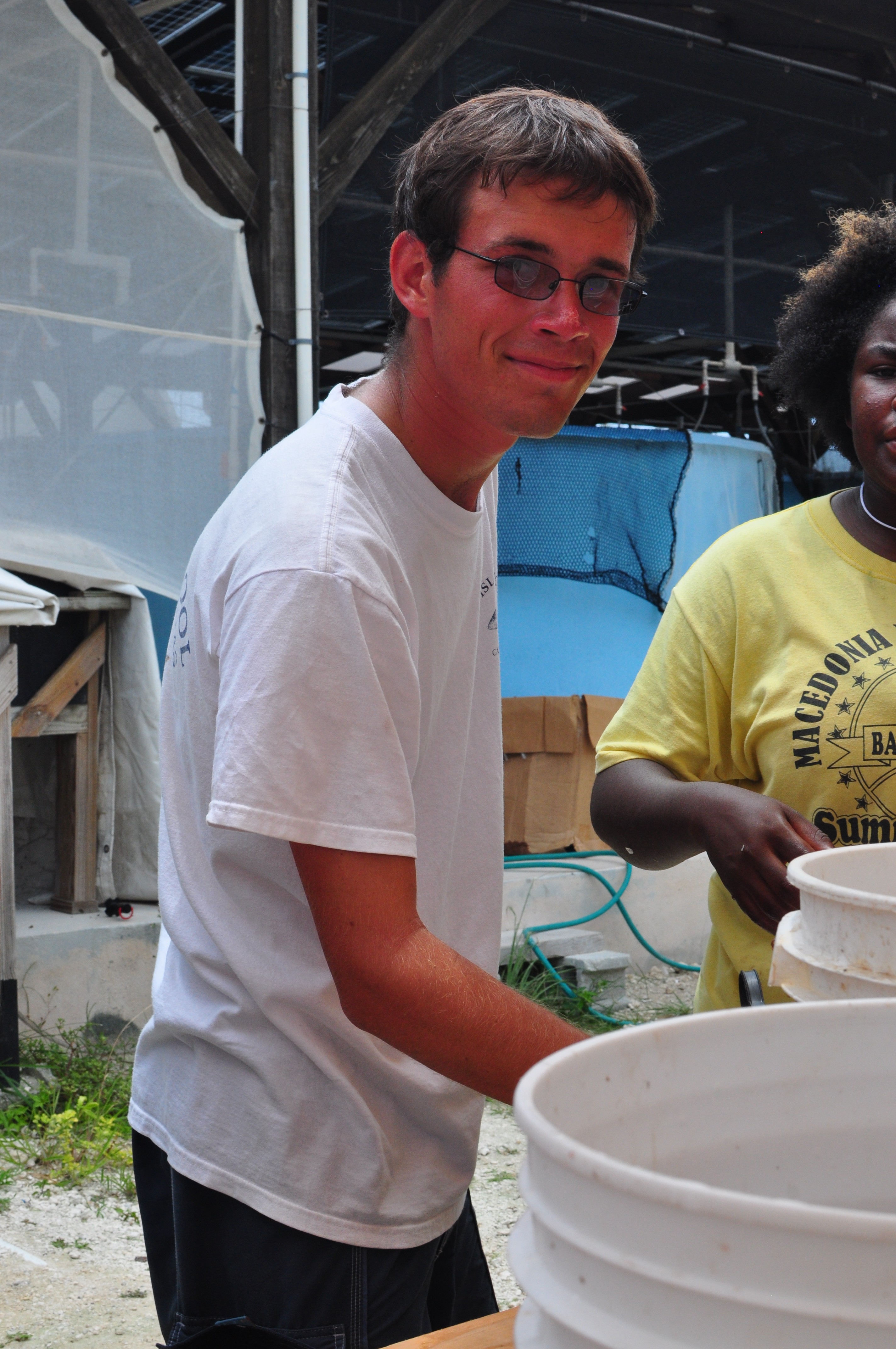[slideshow]The following update was written by caciques Olivia and Maggie from Monday, July 25th.
Excitement filled the air as a couple families joined our 6:30 morning circle and prepared to participate in morning exercise with the students. Grouped in buddies and truddies (three-person buddy groups), we students headed down to the Marina with fresh energy, and introduced our guests to the world of run-swims. The water was refreshing, and some students even saw some rays swimming along with us—a great way to start the day.
After breakfast, students broke off into either their research groups; or had some free time to work on assignments, snorkel with family and friends, or just chill out. Parents joined research class and got the opportunity to see exactly what their children have been doing for the past month.
The aquaculture team got to share an amazing experience with their families. They harvested cobia that was later shared in a community meal for dinner. Students and their families got involved right away to help catch the cobia from the tank. A couple of splashes and laughs later, families jumped right into filleting the cobia. With blood stains and hungry stomachs, they hurried to lunch for a delicious meal.
The sharks team shared an exciting day with parents as well. The team and their families took a boat out to Broad Creek where they experienced field research. After setting up and waiting a while, a lemon shark approached and bit the line. Parents’ excitement shined through their smiling faces when they got to take a picture with the shark.
After lunch, students participated in individual conferences with their parents and their advisors to get feedback on their entire summer term. After those conferences the students quickly prepared for their final research presentations later in the night.
Arriving at the Rock Sound Mission, the students quickly set up their posters and prepared to answer questions. Guests started arriving and immediately everyone became immersed in the amazing presentations that the research groups put together. The presentations were phenomenal and the questions were even better. After a few rotations of intense conversations, everyone gathered to have a tasty local meal including Island School born and raised pork, Bahamian mac n’cheese, fried cobia fingers, sautéed tilapia and baked treats, just to name a few of the delicious featured foods.





